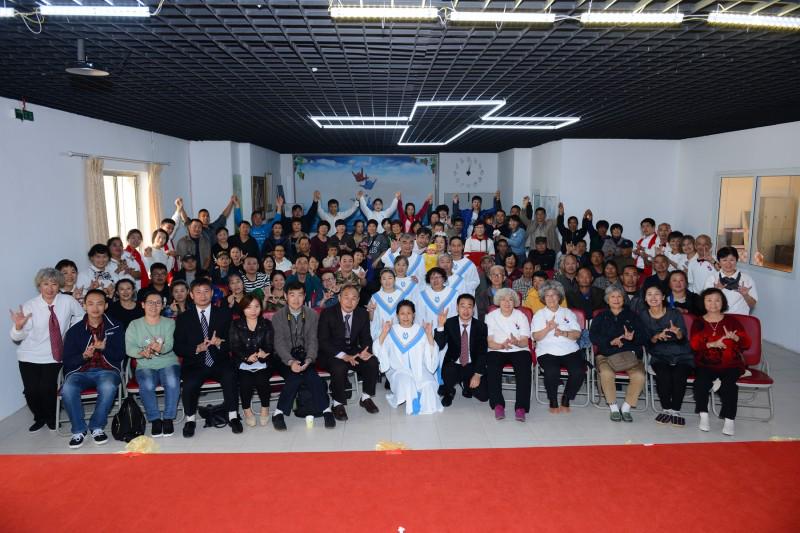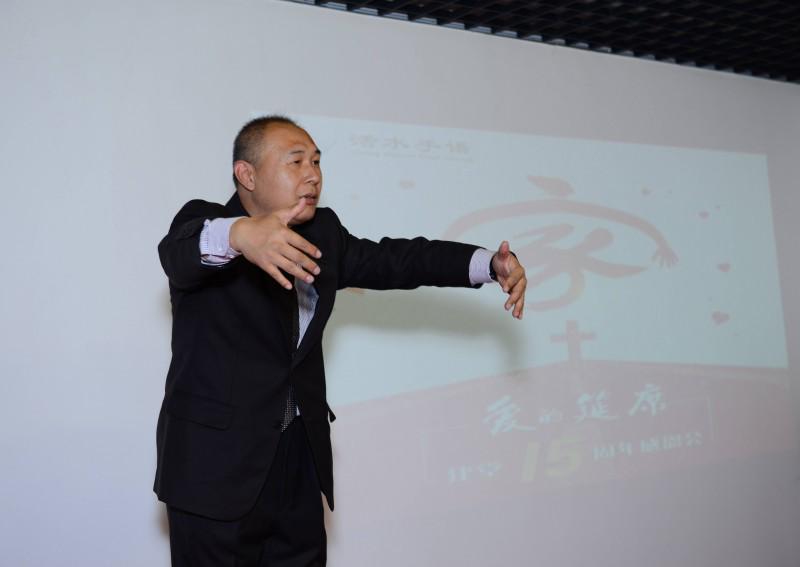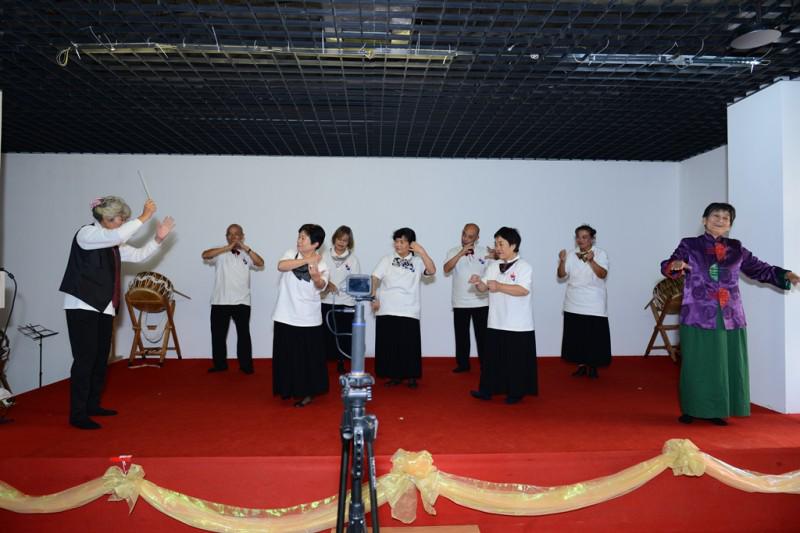On October 15, 2017, the Living Water Sign Language Church of Yantai, Shandong, celebrated its 15th anniversary at the new facility. More than 90 deaf Christians attended it.
Around the theme "Family, Banquet of Love", the celebration consisted of dances, praise in sign language, an interactive program, short plays, games, and a prize draw. Preacher Song Lei, the church leader, delivered a short sermon on "families" in sign language. Following the conductor and empty-handed, seven instrumentalists pretended to play instruments in a program named "Concert for the Deaf." After all the programs were performed, the congregation enjoyed snacks made by some deaf people and their families.
Song Lei shared the church's history, its difficulties and the next steps for sign language with China Christian Daily.
The church started as a house gathering in 1995 and was officially founded in 2002. It has been relocated four times and now gathers in a facility of 400 square meters. It has held several baptism services, weddings for the deaf, and training for deaf workers. Meanwhile, fellowships and gathering places for the deaf have been set up in other churches with its help.
He talked about two problems in deaf churches: insufficient theological education for deaf preachers and financial difficulty. Song said, "Deaf preachers are the best leaders of deaf churches. The deaf hardly understand script and think differently from hearing people, but it's easy for the deaf to understand and communicate with each other. The urgent need for deaf preachers is theological education."
"Since the deaf are commonly poorer than hearing people, it's hard for them to give tithes and offerings. This results in financial difficulties for deaf churches and restricted development of church ministries. The deaf need material support. One may never forget a little help." He added.
Sister Zhang Qi converted to Christianity after two accidents in 2008 when Preacher Song and a church worker visited her at home. Mentioning the visit, she cried. "They not only visited me but also gave me a present," Zhang told CCD. A few months later, she recovered, came to the church, and joined it.
However, there were some cases where members left the church after receiving help from heresies. Song stated that the number of the congregation peaked at 120 or 130, but over the half quit the church after getting material support from the "Jehovah's Witnesses." Now the church has only 50 to 60 left.
Song said that it was hard for him to attend to each deaf member owing to his busy schedule filled with sermon preparation, studying theology, and dealing with church financial difficulties. He felt indebted them and feared that they might be confused by heresies.
Regarding the future, he said, "God was gracious to our church. We had to pay an annual rent of 30,000 yuan for the previous apartment with an area of 80 square meters. Now it only costs 40,000 yuan to rent a facility of 400 square meters in the same building."
First of all, Song wanted to offer theological training for deaf workers and then handiwork opportunities for deaf members. The new facility has two big rooms, one for services and the other for prayer and making handmade items such as cross stitch samplers and handmade beads. He expects to open a factory of handmade products to help deaf Christians as well as deaf non-Christians.
Deaf people account for a significant proportion in China. They want to integrate into society, but are marginalized. With the social development, deaf ministries have been launched in Harbin, Shenyang, Hefei, Yantai, etc. Compared to other ministries, deaf ministries face special challenges that need more attention and guidance from the church.
- Translated by Karen Luo

















